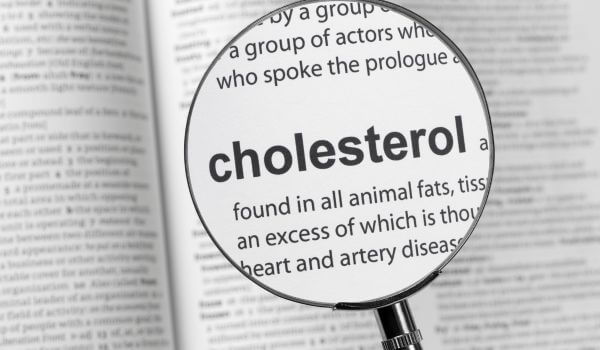Rheunac brings you a bundle of specific health benefits without the need for a prescription. It delivers 200 mg of n-acetyl cysteine (NAC) in an effervescent tablet that can be taken by anyone six years old and older.
This article will explain how Rheunac works and the main therapeutic benefits.
NAC has been studied extensively for its antioxidant and anti-inflammatory properties. It has been found to help treat various conditions, including respiratory and liver disorders, mood disorders, and addiction. It is also currently being studied for its potential in treating autism, Alzheimer’s disease, and other neurodegenerative disorders.
Rheunac for respiratory relief
One of NAC’s most important therapeutic uses is in treating respiratory conditions. It has been found to be effective in reducing symptoms and improving lung function in conditions such as chronic obstructive pulmonary disease (COPD), asthma, and bronchitis. NAC works by breaking down mucus in the respiratory system, making it easier to clear out, and also by reducing inflammation in the airways.
NAC is a member of the mucolytic drug class. One action of NAC is to break up the sulfide bonds in mucus so as to facilitate their easier expulsion from the respiratory tract. This treatment can dilute the viscosity of phlegm and sputum, soften them and allow looser coughing.
A build-up of thick mucus in the airways can come from chronic diseases like emphysema, bronchitis, cystic fibrosis and pneumonia, resulting in chronic obstructive pulmonary disease (COPD) and viral or bacterial infections such as influenza, COVID-19 and streptococcus. Other environmental issues like smoking and long-term exposure to toxic gasses or small particles can result in the development of COPD.
Rheunac as an antioxidant
N-acetyl cysteine as a dietary supplement has been gaining popularity due to its therapeutic benefits in various medical conditions. It is a form of the amino acid cysteine, which is a precursor to the powerful antioxidant glutathione. Cysteine is one of the basic building blocks of glutathione.
Glutathione helps the liver to maintain the oxidative/antioxidative balance necessary for good health. Excess levels of free radicals can lead to liver disease. Other benefits of detoxification include rapid recovery from heavy muscle exertion, improvement in cognitive function, and relieving depression.
N-acetyl cysteine acts as a precursor to glutathione that scavenges free radicals from the body and assists in detoxification.
NAC has also been found to help treat liver disorders such as non-alcoholic fatty liver disease (NAFLD) and non-alcoholic steatohepatitis (NASH). It works by reducing oxidative stress and inflammation in the liver and improving insulin sensitivity.
In addition, NAC has been found to be effective in reducing liver damage caused by acetaminophen overdose. Acetaminophen is the main ingredient in popular OTC painkillers like Tylenol and Paracetamol, and overdosing is a common hazard.
Rheunac as a treatment for behavior disorders
Another important therapeutic use of NAC is in the treatment of mood disorders. It has been used in treating depression, bipolar disorder, and obsessive-compulsive disorder (OCD). It works by increasing the availability of glutathione, which may be low in patients with mood disorders. It also works by reducing inflammation and oxidative stress, which have been linked to depression and other mood disorders.
N-acetyl cysteine has also been found to be useful for treating addiction. It has been used to treat addiction to cocaine, marijuana, and other substances. NAC works by reducing cravings and improving cognitive function. It has also been found to reduce withdrawal symptoms in individuals trying to quit smoking.
In addition to the above, NAC is currently being studied for its potential in treating autism, Alzheimer’s disease, and other neurodegenerative disorders.
In conclusion, Rheunac has a wide range of therapeutic benefits, including improving lung function, treating liver disorders, reducing symptoms of mood disorders, and helping to treat addiction. It works by decreasing the stickiness of mucus, reducing inflammation and oxidative stress, and increasing the availability of glutathione.
Possible side effects of Rheunac
While Rheunac is a very safe drug, it can sometimes cause side effects.
The main reported side effects are mild and should clear up quickly. As with all medications, if any unusual effects are noticed that persist or worsen, report them to your healthcare provider or pharmacist immediately.
The main side effects in breathing that have been noted include additional mucus, sore throat, tight chest or a runny nose.
Other general conditions can be stomatitis (painful swelling or sores on the inside of the mouth), drowsiness, fever, gastrointestinal discomforts such as nausea and vomiting, or clammy skin.
There have been rare reports of more serious reactions, such as an outbreak of hives, trouble with breathing, or coughing up blood. If any of these are noticed, stop taking the medication immediately and go straight to your healthcare provider.
High doses of Rheunac can cause serious side effects, including liver damage and anaphylaxis. Therefore, following the recommended dosages and talking to a healthcare provider before starting NAC supplementation is essential.
In addition to the potential side effects, Rheunac can interact with certain medications. For example, NAC can decrease the effectiveness of nitroglycerin, a medicine used to treat angina. It can also interact with drugs used to treat high blood pressure and blood thinners like warfarin and aspirin.
To summarize, while Rheunac can offer a range of health benefits, it is important to be aware of the potential side effects and drug interactions before starting treatment. If you experience any adverse effects, it is best to discontinue use and seek medical advice.
Recommended Dosages
The dosage should be adjusted according to your age, weight and symptoms. The standard dose is one tablet up to twice daily, fully dissolved in about 8 oz (200 ml) of water. It should be taken on an empty stomach about a half hour before or about two hours after eating. The tablets contain no added sugar and contribute about five calories to the diet.
Pregnant women or mothers who are breastfeeding should consult with a physician before taking Rheunac.















